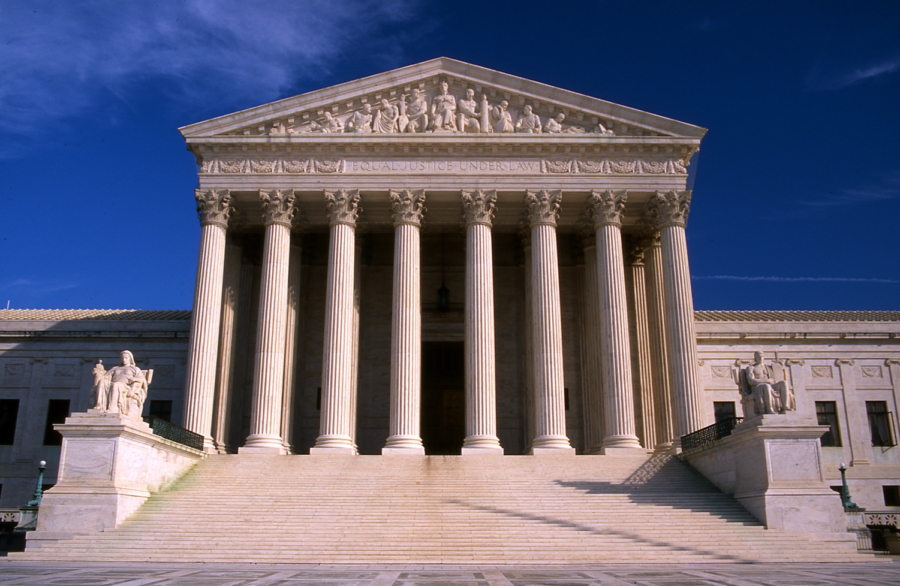Trump’s immigration ban from predominately Muslim countries allowed by supreme court
June 26, 2018
The U.S. Supreme Court upheld President Donald Trump’s travel ban of mostly Muslim countries, on the basis that Trump’s words on the campaign trail cannot be used against him when enacting policy, says one Iowa State political science professor.
David Andersen, assistant professor of political science at Iowa State, said the vote, which was a 5-4 decision, expanded Trump’s power to control immigration into the country.
“What the court is saying is what a presidential candidate says when campaigning, does not matter as long as they can make up some plausible excuse for the use of executive power once they are in office,” Andersen said.
In January, the Supreme Court agreed to hear the case on Trump’s third attempt to ban immigration from certain countries. It originally prohibited travel from eight nations including Iran, Libya, Syria, Yemen, Somalia, Chad, Venezuela and North Korea. Six of those countries are predominantly Muslim, and Chad was later removed from the list.
On the campaign trail, Andersen said, Trump “had clearly indicated” he wanted to prevent people coming to the United States from Muslim nations.
“If you look at what Trump had said he would do it is clearly a ban on Muslims, and that would be the use of a religious test,” Andersen said. “You can’t ban someone based on their religion.”
The president had two previous travel bans that court had refused to hear because the rationale behind the ban was on a religious basis, but Andersen said the third travel ban had a separate reasoning.
“The third ban created another set of rationale that didn’t include religion,” Andersen said. “The Supreme Court said the president has the authority to do things to protect the country, and as long as they can make a plausible case that it is not discriminatory, that’s fine.”
In Chief Justice of the Supreme court John Roberts decision, he stated it was under the president’s authority to create the ban.
“The issue before us is not whether to denounce the statements,” Roberts said. “It is instead the significance of those statements in reviewing a presidential directive, neutral on its face, addressing a matter within the core of executive responsibility. In doing so, we must consider not only the statements of a particular President, but also the authority of the Presidency itself.”
Following the decision, Trump released a statement about the “tremendous victory.”
“This ruling is also a moment of profound vindication following months of hysterical commentary from the media and Democratic politicians who refuse to do what it takes to secure our border and our country,” said the president in a press release issued by the White House moments after the decision.
Some on the court still believed the intent of the ban is to be discriminatory towards Muslims.
“A reasonable observer would conclude that the Proclamation was driven primarily by anti-Muslim animus, rather than by the Government’s asserted national-security justifications,” Said Associate Justice of the Supreme Court Sonia Sotomayor in her dissent. “Even before being sworn into office, then-candidate Trump stated that ‘Islam hates us.”
Sotomayor compared the decision to Korematsu v. United States, the 1944 decision to allow for Japanese-American internment during World War II.
Chief Justice Roberts disagreed in his opinion.
“The forcible relocation of U. S. citizens to concentration camps, solely and explicitly on the basis of race, is objectively unlawful and outside the scope of presidential authority,” he wrote. “But it is wholly inapt to liken that morally repugnant order to a facially neutral policy denying certain foreign nationals the privilege of admission.”
Andersen said the intent of the travel ban was seemingly clear.
“By all indications this was a ban on Muslims,” Andersen said. “What the court is saying is the president has so much discretionary power on what they do as long as it is for national security that we can’t use what we know to be their motivation. We have to use what they say.”
The Council on American-Islamic Relations or CAIR, the nation’s largest Muslim civil rights and advocacy organization, released their own statements disagreeing with the Supreme Court’s decisions.
“This is a setback; not the end of the road,” said CAIR national executive director Nihad Awad. “Today, the Supreme Court made it clear that the responsibility will continue to be on the American Muslim community and its allies to push for an end to the Muslim Ban.
“The Supreme Court’s decision is an invitation to inject discrimination back into our immigration system. More than half a century ago, Congress abandoned a racist immigration system that preferred some races over others. This decision is an abandonment of that milestone.
“The Muslim Ban’s bigotry should have been as clear to the Supreme Court as it is to the Muslims demonized by it. Apparently, everyone but the Supreme Court can see the decision for what it is: an expression of animosity.”
Editor’s note: This article has been updated due to an error. David Andersen’s name was misspelt in a previous version of this story. The error has now been corrected. The Daily regrets this error.
















